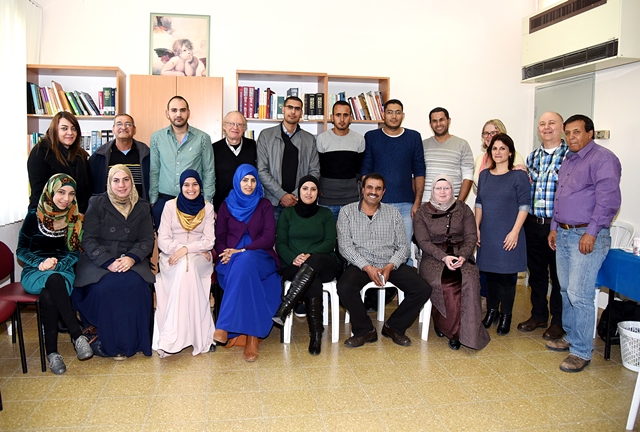
Twenty psychologists and social workers from Hura received diplomas recently after completing level 1 of a workshop on parental reflective functioning. They can now begin to work with parents on these issues.
The workshop is part of a larger project, led by Dr. Naama Atzaba-Poria of the Department of Psychology, to train psychologists and social workers in the Negev on the parental reflective functioning program, an intervention program (which originated in Los Angeles and has been adapted to the Negev populations), in which she and her students work with parents to enhance their reflective capacity.
“Parental reflective functioning is known to be the core aspect of the parent-child relationship – the parental ability to be reflective (to observe the child's as well as their own feelings and thinking behind behaviors), and act from this understanding,” according to Atzaba-Poria.
“I am very excited to be working with professionals in Hura. I think that parental reflective functioning is important in all cultures. Working together with professionals in Hura is necessary to create an intervention that is culturally sensitive. I think that the reflective parenting program can particularly help the new generation of Bedouin parents, who have experienced cultural changes and have less support. This results in confusion and questions about parenting behaviors and ideology. These parents seek support and advice and may benefit from a program that will help them think of their children and of themselves within those cultural and familial changes,” she says.
Dr. Atzaba Poria works on this project together with Shlomit Shneor and Dr. Gal Meiri of the preschool psychiatric unit at Soroka University Medical Center.
The program is funded by retired judge Leon Kaplan.
